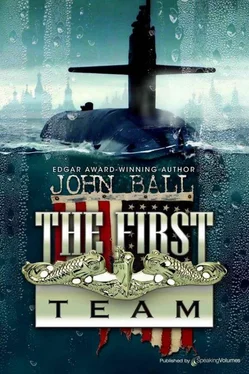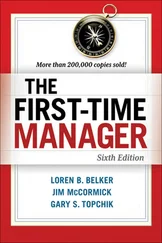Джон Болл - The First Team
Здесь есть возможность читать онлайн «Джон Болл - The First Team» весь текст электронной книги совершенно бесплатно (целиком полную версию без сокращений). В некоторых случаях можно слушать аудио, скачать через торрент в формате fb2 и присутствует краткое содержание. Год выпуска: 2013, Жанр: Триллер, на английском языке. Описание произведения, (предисловие) а так же отзывы посетителей доступны на портале библиотеки ЛибКат.
- Название:The First Team
- Автор:
- Жанр:
- Год:2013
- ISBN:нет данных
- Рейтинг книги:5 / 5. Голосов: 1
-
Избранное:Добавить в избранное
- Отзывы:
-
Ваша оценка:
- 100
- 1
- 2
- 3
- 4
- 5
The First Team: краткое содержание, описание и аннотация
Предлагаем к чтению аннотацию, описание, краткое содержание или предисловие (зависит от того, что написал сам автор книги «The First Team»). Если вы не нашли необходимую информацию о книге — напишите в комментариях, мы постараемся отыскать её.
Student protesters are being slaughtered in the Midwest.
The Jewish pogroms have begun.
You are now living in Soviet — occupied America!
One nuclear submarine and a handful of determined patriots against the combined might of Russia and Soviet-occupied America… The Most Explosive and Gripping “What If” Novel of Our Time!
First published January 1971
The First Team — читать онлайн бесплатно полную книгу (весь текст) целиком
Ниже представлен текст книги, разбитый по страницам. Система сохранения места последней прочитанной страницы, позволяет с удобством читать онлайн бесплатно книгу «The First Team», без необходимости каждый раз заново искать на чём Вы остановились. Поставьте закладку, и сможете в любой момент перейти на страницу, на которой закончили чтение.
Интервал:
Закладка:
“The picture is flickering a little,” Hewlitt said.
“Yes, sir, I see it.”
That meant that the search for listening devices was not completed.
Fifteen minutes later it was. “You’re clean, Hew,” Davy said. “Unless they’ve developed something new and revolutionary very recently. Let me check if anyone else has been in here.”
He made a careful inspection of the inside of both of the doors that gave access to the apartment; he opened each of them slightly, and checked the surfaces of the tumbler latches. When he had finished he came back to the living room. “Tentatively, I doubt if anyone has been in here who wasn’t invited,” he said. “They could have a duplicate key and may have used that, but they probably wouldn’t go to that much trouble when there’s no need.”
“You’re sure that it’s all right?” Hewlitt asked to be certain.
“I’m betting my neck on it.” He indicated the piece of equipment he had used. “You don’t know that, of course, but it’s highly sophisticated and almost impossible to fool. Also it’s entirely passive and gives no evidence that it’s being used. We’ve been trying to fool it ourselves ever since we’ve had it to see how it will stand up and we haven’t been able to get past it once.”
“That’s very reassuring,” Hewlitt said. “Let me make you a drink.”
“Rain-check, please. Anything of interest?”
“Frank knows. I’m expecting Fitzhugh, at his request. If I can, I’ll steer him to the Chinese restaurant.”
“Excellent, we’ll get a tape of whatever it is. The place is safe, by the way, we keep a constant check.”
Davy replaced the back on the TV, but not before he had installed a new part in the picture circuit. “Just in case someone gets curious,” he said. “Remember that I didn’t guarantee that your phone isn’t tapped; that’s another matter entirely.”
“Right. I understand.”
Before he left Davy made out a receipt on his service pad for a cash payment covering the call and the new part. Then he shook hands and let himself out while Hewlitt put the false receipt on an accumulation of other papers. When he was alone once more he evaluated the inspection that had been made and decided that it had been dependable; that piece of interesting equipment and the way in which it had been used somehow inspired his confidence. So, for that matter, did Davy himself; the more he saw of the man, the more he was convinced that he knew what he was doing. And if there was a part in his television set that could be responsible for an intermittent picture, that would be the one that had been replaced. It would all check out if anyone was interested enough to look.
Senator Fitzhugh arrived at ten after seven. Hewlitt was a little surprised to note for the first time how large a man he was. So often that was true of successful politicians; many people seemed to feel that a physically big man would be able to represent them more effectively and somehow the votes he would cast would be more authorative. It wasn’t true, of course: Harry Truman was a good case in point. On the other side of the fence, Hitler had been a small man too.
In Hewlitt’s modest apartment the impressive, white-haired senator seemed slightly out of place. He settled himself into a chair and accepted a drink as anyone else might have done, but he kept looking about the room as though he were expecting something to happen or someone else to appear. Hewlitt, his own glass in his hand, sat down reasonably close to his distinguished visitor. He did not presume intimacy, but he offered himself as a companion if the senator wanted it that way. He had asked for this meeting, so presumably he had something to say.
After a few seconds of silence it became evident that Senator Fitzhugh was ill-at-ease. He continued to look about; it struck Hewlitt that he might be unconsciously hoping that some interruption would occur and he would not have to unburden himself of whatever was on his mind.
Finally he decided to speak. “Mr. Hewlitt,” he said, “I have come here to see you more or less as an act of desperation.”
“How may I help you, sir?” Hewlitt asked.
Again the senator fell silent, apparently sorting out his thoughts one at a time. ‘1 am concerned that in some manner we might be overheard,” he said finally.
Hewlitt remembered the desirability of having any significant conversation taped. In a way it would be a betrayal of the senator’s confidence, but presumably anything Fitzhugh had to say to him should be reported if it was of value.
“I have no reason to believe that these rooms have been wired,” he said, “but considering what we both know, I’m being exceptionally cautious. Your secretary told me that you would like to eat in some out-of-the-way place where we could have some privacy.”
“That’s correct — yes,” Fitzhugh answered.
“Quite close to here there is a small, very quiet Chinese restaurant I go to sometimes. The food is quite a bit better than average, and they have a number of booths where it is possible to sit unobserved.”
“Chinese food is not my especial favorite,” the senator said, “but at the present time I don’t care very much what I eat and the place you suggest sounds suitable. Let’s go there.”
Hewlitt had a second thought: he was satisfied in his own mind that they were not being overheard and it might be that in a more public place Fitzhugh would be totally reluctant to talk at all. “Is there anything I can do for you before we leave?” he asked.
Senator Fitzhugh shut his eyes and let his head sag; he made no attempt to disguise the pain that crossed his features or the tightness that came after that. For a moment Hewlitt wondered if he was ill, then he saw the senator’s body shake under the effect of a silent, unheard sob. When he looked up again his eyes were wet, and his mouth betrayed his anguish. “Not unless you can tell me how to get back my son,” he said.
He remained that way, silent and still, for three of the longest minutes that Hewlitt had ever known. The senator was a widower, and his son had apparently been the only person close to him for some time. Hewlitt swallowed and then sat as still as he was able, respecting the man’s grief. He knew, he had been told, that Gary Fitzhugh had died a hero and someday he would be honored for it, but that did not breathe back life into his body or restore those who had perished with him.
At last the senator regained control of himself. “Let’s go and eat,” he said.
At the restaurant they were received by the unemotional head-waiter who welcomed them and guided them to the same back booth where Hewlitt had sat with Phil Scott. If the headwaiter had recognized Senator Fitzhugh, he gave no indication. “Enjoy your dinner, gentlemen,” he said when they were seated, handed them menus and then withdrew.
The business of ordering food and having the first of it served occupied a few minutes. During that interval the senator said very little; his thoughts were elsewhere and he barely escaped being rude. He ate his soup with apparent relish since he put it down quickly, then waited once again until the several dishes that comprised the main course had been put on the table. He helped himself to sweet and sour pork, added a few pieces of the pineapple, and then at last seemed to have brought his thoughts back closer to home.
“Mr. Hewlitt,” he began, “I am turning to you for one reason and one reason only; you have demonstrated to me that you can be relied upon to maintain secrecy. I don’t know you very well, but I have little choice left to me.”
Hewlitt pitched his voice properly low. “Senator, my one dedication at the present time is to my country. That may sound old-fashioned to you, but I am in dead earnest about it.”
Читать дальшеИнтервал:
Закладка:
Похожие книги на «The First Team»
Представляем Вашему вниманию похожие книги на «The First Team» списком для выбора. Мы отобрали схожую по названию и смыслу литературу в надежде предоставить читателям больше вариантов отыскать новые, интересные, ещё непрочитанные произведения.
Обсуждение, отзывы о книге «The First Team» и просто собственные мнения читателей. Оставьте ваши комментарии, напишите, что Вы думаете о произведении, его смысле или главных героях. Укажите что конкретно понравилось, а что нет, и почему Вы так считаете.












